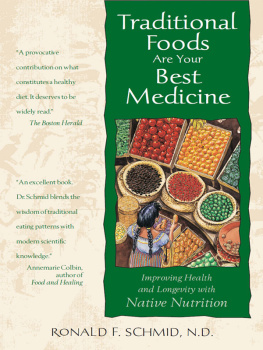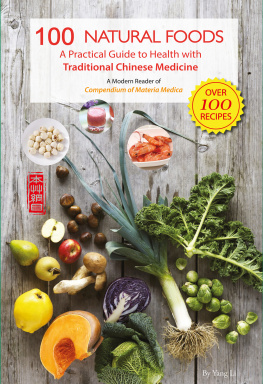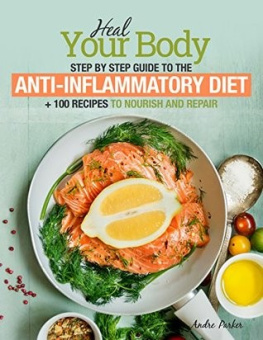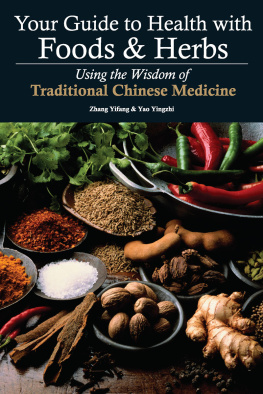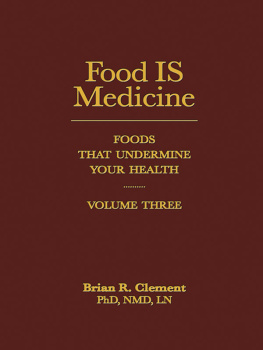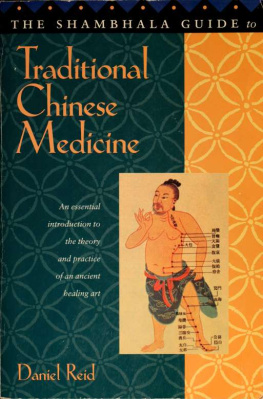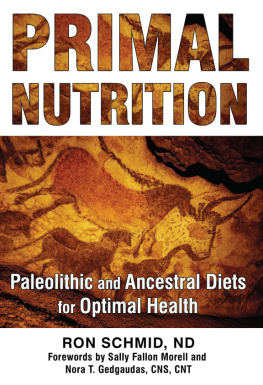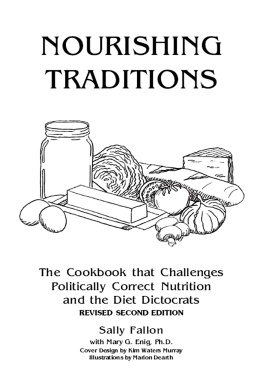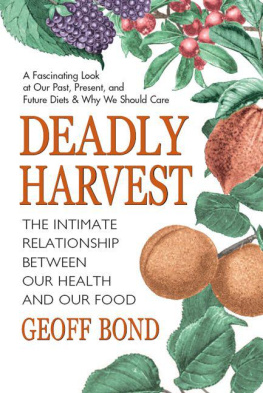
To my mother and grandmother
and to Sathya Sai Baba
Contents
Preface
Healing, Health, and Wholeness
In the mid 1980s I wrote the first edition of Traditional Foods Are Your Best Medicine, in which I presented the details of my research on food and health and my experience with using food as a healing agent. My research was grounded in the work of Dr. Weston Price, the great dentist and anthropologist of the 1920s and 1930s who discovered fundamental laws of nature that indigenous cultures throughout the world had followed from time immemorial to ensure robust good health, the absence of disease, and the production of perfect babies generation after generation.
This new edition of Traditional Foods retains most of the information from the original, but I have added certain of my conclusions and recommendations in light of my experiences of the past several years. I have made more clear how the reader may apply the principles of nutrition my research has taught me. I have rewritten sections of the book to reflect my growing awareness of the importance ofto put it most simplythat which may not be perceived by the five senses nor by the most sophisticated scientific instruments.
When I wrote the original Traditional Foods, I believed food was the essential element that a person needed to learn about and carefully control if healing was to take place. That was how I had healed myself, and that was how I had helped many people recover from various diseases.
I am more convinced than ever that the details of the unconventional approach to nutrition presented in that book are at the very heart of recovery from disease and of optimal physical well-beingthe kind of well-being that is necessary for optimal development of the spirit. I remain convinced that at least some fish or other animal-source food of a certain quality is needed in the diet to support optimal health. This belief is supported by overwhelming evidence from diverse fieldsanthropology, biochemistry, clinical nutrition, and the experience of a multitude of healers, including many whose work is detailed in this book. I have found it fascinating that the foods considered sacred in native culturesthat is, the foods considered to have spiritual qualities and to be absolutely essential for a cultures people, the foods around which rituals and ceremonies evolvedto the best of my knowledge were invariably animal-source foods in the healthiest cultures that anthropologists studied.
And yet, I have come to believe that the essence of healing lies beyond food and the repair of the physical body. I have long maintained that it is impossible for most people to eat any better than they think, at least not for an extended period of time. Only a reasonably healthy attitude toward life can maintain the discipline required to follow a healthy diet. Without changes in attitude, most people are unable to maintain a diet, and they slip back into their medical problems as their diets slip. On the other hand, some individuals can for years maintain extremely disciplined dietary habits and robust physical health, despite less than optimal success in achieving emotional balance and spiritual growth.
I can only conclude that healing begins and proceeds for each of us in a totally unique and mysterious way. We each begin perhaps in the area that is easiest for us. I have read of cases where changes in emotional attitude and spiritual orientation have led directly to dramatic recovery from physical ailments. Certainly I would not deny the influence of thoughts and feelings on the physical body. Yet my experience with thousands of people tells me that for the vast majority, effort in the emotional and spiritual areaschanges in attitude and outlook, therapy, group work, expansion of consciousness through seeking a spiritual path in lifemay lead to emotional and spiritual wellness, while effort in the physical areadiet, exercisemay lead to physical wellness. While there is always some overlap, and sometimes more than others, it is only by efforts in all areas that the wholeness of true emotional, physical, and spiritual health may be reached.
Such wholeness is for me the goal of healing, the destination of a spiritual journey. I make no claim to have arrived at my destination; it is enough for now to have embarked. Most of this book is about the relationship between food and physical healing, an area in which I have considerable experience and expertise. When I write on emotional and spiritual growth and wellbeing, my words may only reflect how far I have traveled on this path in my own search for wholenessno healer can take another places he has not traveled himself. Natural foods have played an important role in my journey and in the journeys of many of my patients. My hope is that by sharing some of these journeys, I can help my readers both in their efforts to understand the role of food in a path to wholeness and in their own spiritual growth.
What do I mean by the emotional, physical, and spiritual health that constitutes wholeness?
Emotional health is more than, yet encompasses, what is generally referred to as mental health. It is a feeling of rightness about yourself and your place in the flow of life. It is the capacity to feel healthy and appropriate emotions in any situation and to take appropriate actions. It is the capacity to accept and give unconditional love to everyone in your life, within the framework of protective personal boundaries. It is an ability to be truly intimate and to share your life with other human beings. It is loving and caring for yourself and others.
Physical health is a body and mind that function easily. Desires for a full life are strong, as is the ability to live a full life. No signs or symptoms of distress are presentno colds, aches or pains, undue fatigue, or allergies, much less more serious conditions. There is a feeling of physical strength, endurance, and vigor, and a nonchalant assumption that ones body should and does function perfectly and effortlessly.
Spiritual health may be defined by asking a series of questions; our answers may serve as a barometer of our spiritual health. Are we willing to let go of guilt, shame, and any behavior that keeps us from loving ourselves and others? Do we follow a path of compassion, respect, and love toward our fellow human beings, express love and gratitude to others, and appreciate the wonder of life? Can we stay in touch with our true feelings, promptly acknowledge when we are wrong, stand up for the things we believe in? Do we accept the ups and downs of life as natural events and use them as lessons for our growth? Are we conscious of our interrelationship with all living things? Have we found our inward calling and developed the will and wisdom to follow it? Have we attuned our consciousness with the energy of life and love that pervades the Universe and experienced ourselves as complete and joyous human beings, seeking to share our lives with our fellows and to contribute to restoring peace and balance on the planet?
If you are thinking that the definition of spiritual health that these questions imply has little to do with church going and conventional religiosity, you are right. The spiritual health I refer to is internalized and does not depend upon belief in an external God who grants favors or rules our lives. Rather, it seeks to recognize, awaken, and nourish the God within each of usthe universal Creative Energy, the Great Spiritthat we may light our own path. The healed soul shines from within.
It is the universal human drive toward wholeness that fuels such spiritual concerns. And it is in the context of that drive that I see the importance of traditional foods.
Next page
